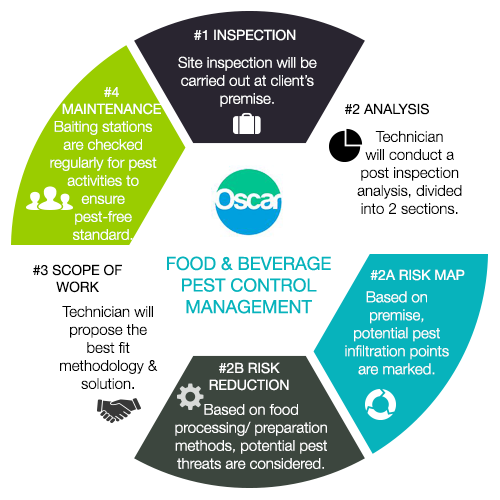Comprehending The Habits Of Rats: A Guide To Rat Control
Comprehending The Habits Of Rats: A Guide To Rat Control
Blog Article
Authored By-Sandoval Stougaard
Have you ever asked yourself why rats seem to be so evasive and difficult to manage? Comprehending the habits of rats is crucial to efficiently managing their populaces.
By getting insight right into their communication patterns, feeding habits, and nesting and reproducing habits, you can establish approaches that will help you maintain these pesky rodents away.
So, let's check out the remarkable globe of rat behavior and find how this expertise can encourage you in the fight versus these undesirable home visitors.
Communication Patterns
To understand rat behavior, it's important to research their communication patterns. https://how-to-remove-the-brush-f16172.win-blog.com/3960031/discover-the-5-undeniable-warning-signs-of-a-bed-pest-problem-don-t-wait-till-it-s-too-late-call-our-parasite-control-professionals-today are very social creatures and rely upon communication to endure and flourish in their setting. They use numerous types of communication to convey info to various other rats in their team.
click the up coming webpage of rat interaction is their articulations. Rats create a vast array of noises, including squeaks, tweets, and babbling, which offer different purposes. These articulations can reveal concern, aggressiveness, and even contentment.
In addition to articulations, rats additionally connect through body language. They utilize their tails, ears, and postures to convey messages to various other rats. For example, an upright and puffed-up position might indicate prominence, while a squashed stance may suggest submission.
Feeding Habits
Rats' interaction patterns offer insight into their feeding habits. Understanding exactly how rats feed can help us much better manage their populations. Here are five bottom lines about their feeding behaviors:
- ** Omnivorous diet: ** Rats are opportunistic eaters and will certainly consume nearly anything they stumble upon. From grains and fruits to meat and even garbage, their diet plan is extremely diverse.
- ** Hoarding behavior: ** Rats have a natural impulse to hoard food. fall armyworm control 'll accumulate and save excess food in hidden spots for later usage, making it testing to situate and eliminate their food resources.
- ** Nocturnal feeding: ** Rats are mainly nocturnal animals, indicating they're most active throughout the evening. They prefer to feed under the cover of darkness when they really feel safer and much less most likely to experience killers.
- ** Water dependency: ** Rats call for a consistent source of water to make it through. They'll commonly seek water sources near their feeding areas, such as leaky pipes or open containers, to please their hydration requires.
- ** Scavenging habits: ** Rats are very competent scavengers, which allows them to grow in urban environments. They'll search for food in trash bins, dumpsters, and various other places where human waste is present.
Nesting and Breeding Behavior
Nesting and reproducing actions in rats entails the development of intricate burrows and the establishment of ordered social structures.
Rats are understood for their capacity to dig complex systems of passages, which act as their nests. These burrows give shelter, defense, and a safe place for reproducing. The nesting actions of rats is driven by their reaction to find a safe and secure and comfy area for elevating their young.
Within these burrows, rats establish a hierarchical social structure, with leading people occupying greater settings. This hierarchy determines accessibility to resources such as food and mates.
Breeding behavior in rats is identified by territoriality, with males contending for the opportunity to mate with women.
Comprehending the nesting and breeding actions of rats is important for efficient rat control strategies.
Conclusion
So, now you have a much better understanding of the elaborate globe of rat habits. These intelligent animals have distinct communication patterns and exhibit interesting feeding habits.
Their nesting and breeding habits, while respected, can be a delicate subject. By getting insight right into their actions, we can come close to rat control with even more compassion and performance.
Keep in mind, dealing with the visibility of these clever rodents requires a nuanced strategy that values their all-natural reactions.
